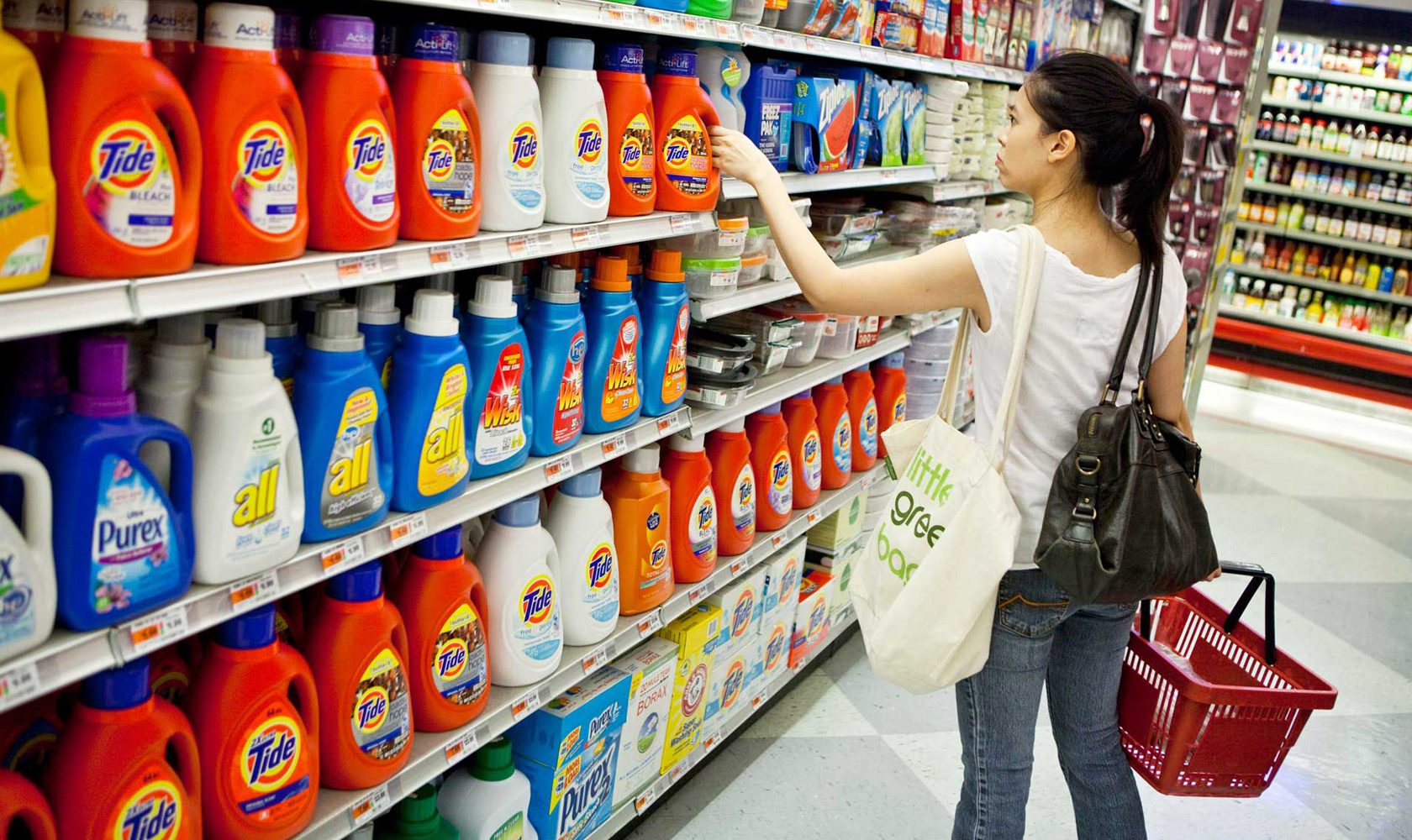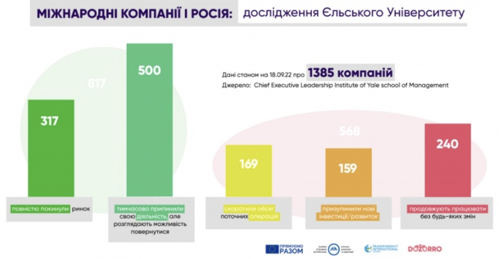Gillette: 'The best missiles a man can get'. Why Procter & Gamble is sponsoring the war

The Kremlin has started a large-scale war and the Russian Federation has been officially recognised as a state sponsor of terrorism, yet the multinational Procter & Gamble (P&G) continues to fill the coffers of the Russian state budget.
Like any large American corporation, P&G claims to take an ethical approach in its charter. However, this does not stop Gillette’s Russia-based factories from financing the Russian army through the taxes they pay.
"P&G people believe we have a responsibility to society, and we will continue to step up and step forward to use our reach and resources to be both a force for good and a force for growth. P&G is committing to lead through acts of good that will have a lasting, positive impact on people and communities around the world."
These were the words of David Taylor, P&G’s executive chairman, when the Lead with Love consumer campaign was launched in 2021. But by 2022, Taylor's claims were sounding rather less convincing, given that the company is directly or indirectly investing resources in supporting the war.
How is it that Procter & Gamble is one of the few American companies that openly support the Russian economy? What is P&G’s Ukrainian branch doing? And are companies that have withdrawn their business from the state sponsor of terrorism losing out?
From taxes to mobilization
After 24 February 2022, P&G, along with hundreds of other multinationals, released a series of high-profile statements condemning Moscow's actions, announcing that they would be "significantly reducing" sales, and even warning of a complete exit from the Russian market.
Responsible businesses that value their reputation and comply with sanctions left Russia in the first three to four months after the start of the military invasion. The companies that remained have either suspended their operations or reduced their presence and investments in Russia, but in fact they continue to sell their goods and services in the aggressor country.
Not only has P&G stayed in the Russian Federation, it has not halted operations in its two vast factories. These jobs and taxes support Russia’s economy which, in turn, allocates a large part of the budget to the military industry.
There are two P&G manufacturing giants operating in Russia: the Gillette razor manufacturing plant in St Petersburg, and a toiletries manufacturing plant in Tula Oblast which is the world's largest producer of detergents for P&G.
The Tula plant produces brands such as Ariel, Tide, Myth, Tix, Ace, Lenor, Comet, Fairy, Mr. Proper (Mr. Clean) and Pampers. On a visit to this plant in 2020, Tula Oblast Governor Aleksey Dyumin called P&G "a strategic partner of Tula Oblast".
He’s not wrong: in 2021 the Russia-based P&G subsidiary made a net profit of 1.4 billion roubles after tax of 365 million roubles (around US$5.2 million) had been paid to the Russian budget. The company also provides jobs for 2,500 Russians.
When the war in Ukraine started, P&G put out a statement in March emphasising that it would be supporting its Russian workers. At the same time, the corporation stressed that it would be reducing its product portfolio "to focus on basic health, hygiene and personal care items needed by the many Russian families who depend on them in their daily lives".
However, P&G later raised the prices of such products, which almost offset the loss of income from reducing the brand portfolio. It looks as if the stated concern for "many Russian families" was actually an attempt to stay in this vast market by any means possible and take advantage of the fact that more responsible competitors had ceased all cooperation with the totalitarian regime.
Moreover, under new Russian legislation, corporations operating in the Russian Federation are required to participate in the mobilisation process, promote the conscription of their employees into the army, and even finance their military equipment.
While the continuing operation of the Gillette plant in St Petersburg may still be somewhat justified by P&G's concern for its employees and their families, when it comes to facilitating mobilisation, the company’s support for the war and terror is direct.
Losses due to withdrawal from Russia
For most multinationals, their complete exit from the Russian Federation caused huge financial losses. These losses were not only associated with sales – some holding companies had invested billions in vast manufacturing facilities in Russia. At the moment, it is impossible to withdraw investments from a country that holds international law in contempt.
Nevertheless, experts from Yale say leaving the totalitarian state will result in more profits than losses in the long run.
Despite the suspension of operations in Russia and the devaluation of assets, the share price of companies that left Russia has risen significantly. Moreover, the faster the companies withdrew their business from the aggressor state, the more positive the market reaction.
Markets are more favourable to companies that have voluntarily left Russia. They can get better treatment when it comes to financing, since their corporate reputation has been enhanced.
Other well-known brands which have remained in the Russian Federation besides P&G include Colgate-Palmolive, Johnson & Johnson, Kraft Heinz, Vimeo, Patreon, Metro, Ritter Sport, Siemens, Knauf, Leroy Merlin, Auchan, Decathlon, Bonduelle, Lactalis, Danone, Lacoste, Etam, and Yves Rocher. The list goes on - there are hundreds of companies.
The second largest player in the razor market – the French company BIC – is also trying to dodge between the raindrops of sanctions. The company has removed its official sponsorship logo from the website of the St Petersburg football club Zenit, but it continues to sell products in the Russian Federation and generates significant revenue for the state budget.

In contrast, neither financial nor manufacturing losses have stopped companies such as McDonald's, Netflix, Apple, Coca-Cola, eBay, Mercedes-Benz, BMW, Volkswagen, Henkel, Dr. Oetker and L'Occitane from leaving Russia. Renault stopped running its plant in Moscow only after widespread criticism.
Public condemnation, pressure from partner companies, and the risk of sanctions all affect the decisions made by the holding companies’ management. Corporations understand that most consumers do care who produces or sells their goods and services.
More and more people in Ukraine are boycotting Gillette, Fairy and Lenore, insisting that even the quality of these products, tested over the years, does not justify the manufacturer’s support of the Russian economy. There is even a Telegram bot, @BoycottRussiaBot, that was created to display the list of companies that have stayed in the Russian Federation.
"Humanitarian missiles"
Major companies such as Procter & Gamble or Auchan do a lot of humanitarian work in Ukraine, supplying hygiene kits to frontline regions and assistance centres for refugees and internally displaced persons.
P&G and its counterparts are sponsoring Russian missile attacks on Ukraine with one hand and helping their victims with the other. When the "philanthropist’s" money is funding the destruction of cities in the background, aid packages of sanitary pads and razors look like a cynical ploy.
In addition, despite their support for the enemy, companies like P&G continue to work freely in Ukraine and have significant market share.
P&G has significant manufacturing facilities in Pokrov, Dnipropetrovsk Oblast, and Boryspil, Kyiv Oblast, Ukraine. Both cities have been repeatedly attacked by the Russians. Representatives of the US company were actually there when some of the attacks happened, but that had no bearing on the management’s decision regarding the termination of the corporation's activities in Russia.
Compared to some brands that have lost their reputation for supporting the Russians, P&G has successfully maintained its image of being loyal to Ukraine. This seems to be due either to successful PR regarding its humanitarian activities, or to the fact that Ukrainians are unaware of the amount of assistance being provided by an American company to Russian terrorists.
According to Ukrainian Wikipedia, P&G has almost 2,000 employees in Ukraine. Some of them are almost certainly now on the front line. Since the beginning of the war, P&G’s Ukrainian office has not made any statement about supporting those of its employees who are serving in the Armed Forces, while its Russian office continues to hire new employees.
P&G's policies for business conduct state, "The Company is concerned not only with results, but with how those results are achieved. We will never condone nor tolerate efforts or activities to achieve results through illegal or unethical dealings anywhere in the world." However, "anywhere in the world" demonstrates precisely the opposite attitude.
Material prepared by the Economic Security Council of Ukraine (ESCU).
ESCU is an institution that was founded to develop expertise in identifying and countering internal and external threats to the economic security of Ukraine.
Journalists fight on their own frontline. Support Ukrainska Pravda or become our patron!